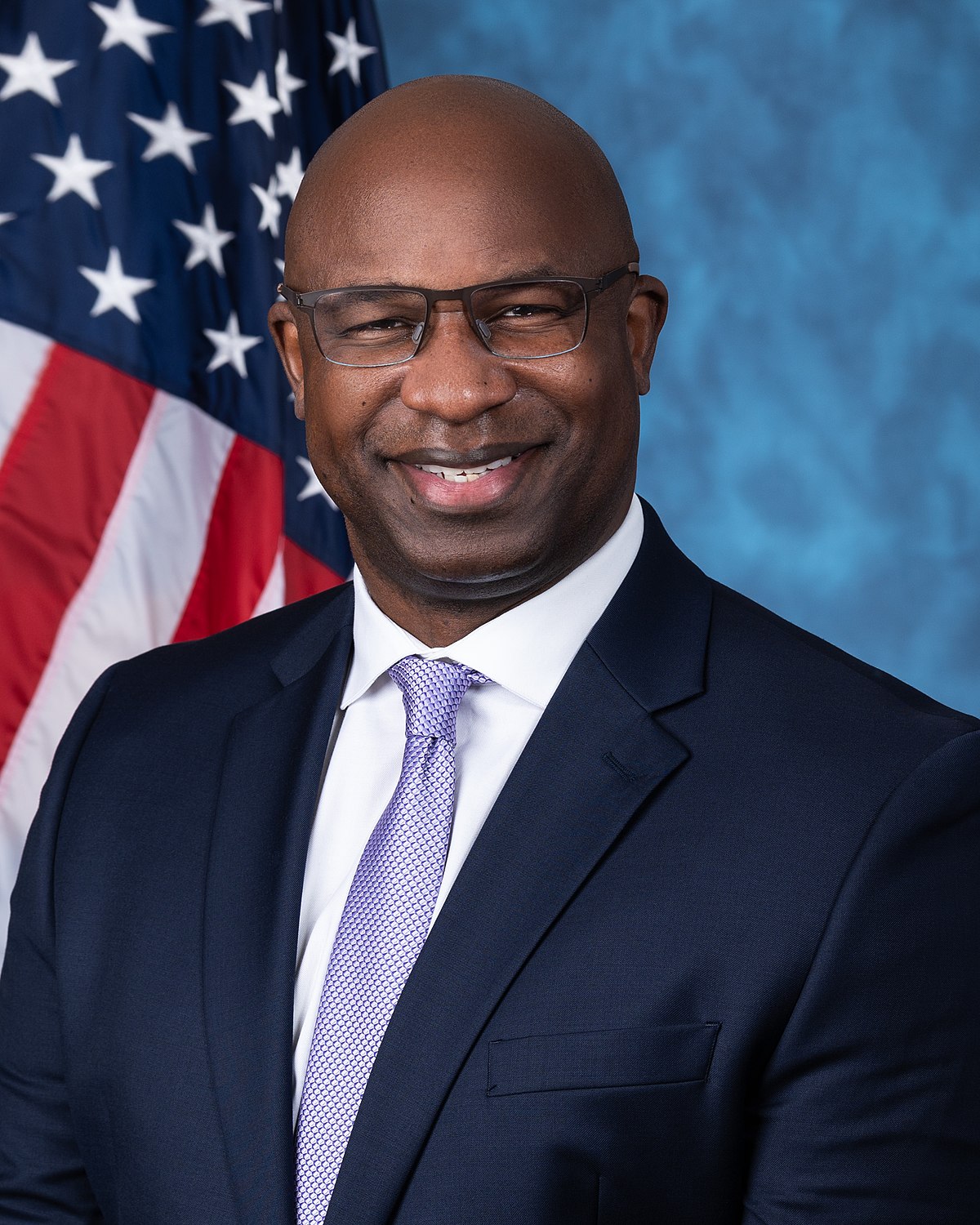Jamaal Bowman
Lifetime Score: 96%

FP4A supported H.R. 8035, the Ukraine Security Supplemental Appropriations Act, 2024, which provided $60.1 billion in security assistance to Ukraine and billions more in humanitarian and direct budget support. The bill, sponsored by Rep. Tom Cole (R-OK), passed 311–112, and was ultimately incorporated into the larger national security supplemental package. Foreign Policy for America scored positively those who supported this legislation.
FP4A opposed H.R. 1, the Lowering Energy Costs Act, which would have boosted fossil energy development through relaxed permitting, review, and leasing practices and repealed key provisions of the Inflation Reduction Act, the most comprehensive and impactful piece of federal clean energy legislation ever enacted. The bill, introduced by Majority Leader Steve Scalise (R-LA), passed the House by a 225–204 vote. Foreign Policy for America scored positively those who opposed this legislation.
FP4A opposed H. Amdt. 444 to H.R. 4655, the FY2024 Department of State, Foreign Operations, and Related Programs Appropriations Act, which would have reduced the Economic Support Fund (ESF) by $1.8 billion to the FY18 enacted level. The ESF account includes programs to strengthen support for democracy, human rights, and governance. The measure, introduced by Rep. Scott Perry (R-PA), failed by a 133–297 vote in the House. Foreign Policy for America scored positively those who opposed this amendment.
FP4A opposed H. Amdt. 317 to H.R. 4368, the FY2024 Agriculture, Rural Development, Food and Drug Administration, and Related Agencies Appropriations Act, which would have eliminated all funding to the McGovern-Dole International Food for Education and Child Nutrition Program. The program supports efforts to improve food security and education for children around the world. The measure, introduced by Rep. Andy Biggs (R-AZ), failed by an 81–350 vote in the House. Foreign Policy for America scored positively those who opposed this amendment.
FP4A supports intersectional approaches to addressing gender inequality and empowering women across every aspect of society. Backed by that vision, Foreign Policy for America chose to score cosponsorship of a collection of bills that address the many ways and areas in which women are either marginalized or disproportionately impacted across the world. Foreign Policy for America scored positively those who cosponsored at least three of the following six bills:
FP4A opposed H.R. 1425, the No WHO Pandemic Preparedness Treaty Without Senate Approval Act, which would have established that any agreement on pandemic-related issues reached by the World Health Assembly be deemed a treaty requiring the advice and consent of the Senate. This provision could endanger American lives by hampering efforts to develop a multilateral response to future health emergencies. The measure, introduced by Rep. Tom Tiffany (R-WI), passed by a 219-199 vote in the House. Foreign Policy for America scored positively those who opposed this legislation.
FP4A opposed H. Amdt. 442 to H.R. 4665, the FY2024 Department of State, Foreign Operations, and Related Programs Appropriations Act, which would have cut funding for the U.S. Agency for International Development by $4.5 billion. The proposed cuts included $750 million from Global Health Programs, the entire $3 billion budget from Development Assistance, and $750 million from International Disaster Assistance. The measure, introduced by Rep. Matt Gaetz (R-FL), failed by a 115-312 vote in the House. Foreign Policy for America scored positively those who opposed this amendment.
FP4A opposed H.R. 5961, the No Funds for Iranian Terrorism Act, which would have prevented the release of frozen Iranian funds that had been negotiated in exchange for the release of five U.S. citizens detained in Iran. The measure would have undermined ongoing and delicate diplomacy between the United States and Iran to resume negotiations on Iran’s nuclear weapons program. The measure, introduced by Rep. Mike McCaul (R-TX), passed by a vote of 307-119 in the House. Foreign Policy for America scored positively those who opposed this legislation.
FP4A opposed H.R. 8369, the Israel Security Assistance Support Act, which would have enabled the immediate delivery of security assistance to Israel without accounting for existing laws governing arms transfers. The legislation also proposed freezing the salary of any Department of State or Defense employee involved in any action to limit or delay the transfer of defense items and services to Israel. The measure, introduced by Rep. Ken Calvert (R-CA), passed by a 224-197 vote in the House. Foreign Policy for America scored positively those who opposed this legislation.
FP4A opposed H.R. 2, the Secure the Border Act of 2023, which would have revived and expanded border and immigration policies enacted during the first Trump administration. These policies included eliminating or curtailing humanitarian protections for asylum seekers, criminalizing the overstaying of visas, reestablishing family detention, and ending special protections for migrant children. The measure, introduced by Rep. Mario Diaz-Balart, passed by a 219-211 vote in the House. Foreign Policy for America scored positively those who opposed this legislation.
FP4A supported H. Amdt. 231 to H.R. 2670, which would have struck a provision in the National Defense Authorization Act that prohibited the Department of Defense from reducing the total number of nuclear armed intercontinental ballistic missiles below 400, the current limit set in the New START Treaty, potentially hindering the flexibility needed for future nuclear arms control and disarmament efforts. The measure, offered by Rep. Rashida Tlaib, failed by a vote of 266-160 in the House. Foreign Policy for America scored positively those who supported this amendment.